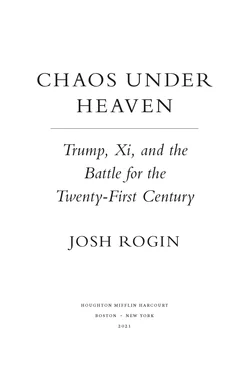Guo had been sending legions of his followers to stalk, harass, and threaten several leading Chinese American dissidents all over the United States, including Pastor Bob Fu, the same activist who had helped free Washington University student Vera Zhou. On YouTube, Guo said Fu and other human rights and democracy activists were all CCP spies and called on his followers to “eliminate” them. Fu had to take his family into hiding under police protection as New Federal State of China followers “protested” outside his house, waving signs threatening his life and calling him a “fake pastor and CCP spy.” On social media, Guo’s followers spread posters of Fu beaten and bloodied. At the same time, Chinese state-affiliated propaganda outlets like the Global Times were also attacking US dissidents and activists, including Fu.
Fu told me Guo was a dissident hunter masquerading as a dissident. When I asked Guo about his actions against other dissidents, he claimed he was rooting out CCP spies inside the United States and referred me back to the story of how Beijing had worked so hard to convince Trump to extradite him. “If I had ties to the CCP, why would the CCP pay $8 million to Elliott Broidy and offer him a significantly larger success fee to have me deported back to China?” Guo asked me, rhetorically. “This is classic CCP disinformation 101, and Bob Fu and his friends seem to have a master’s degree in it.”
A senior administration official told me that many people inside the intelligence community believed that Guo was still working with one faction inside the CCP, as part of an interfactional competition within the CCP system, while using his US platform as a purported dissident to attack a different faction. Dueling interference efforts by dueling factions in an adversary government was not something the United States had seen before—but this scenario could well explain why the US intelligence community assessed China to be interfering in the presidential election in support of Joe Biden, even as a billionaire with a suspicious history of taking steps that benefited the CCP appeared to be interfering in the same election in support of Bidens opponent.
There is another possible explanation for Guo’s involvement in the laptop story, however—an explanation that is, if anything, more disturbing than the scenario involving factional infighting within the CCP.
It was clear that GNews’s involvement in the Hunter Biden story was harming the story’s credibility. GNews users spliced the Hunter Biden videos with messages claiming that the compromising information came from the CCP in Beijing, not a blind computer repair shop owner in Delaware, as Bannon and Giuliani claimed. GNews also spliced the content with easily provable false information, such as crudely faked videos purporting to show that Hunter Biden had been caught in compromising positions with Lady Gaga, Malia Obama, and the actress from Disney’s Mulan . These were so ridiculous that they made the rest of the information more suspect—a fact that would actually hurt Trump’s cause, which would advance Beijing’s interests, if indeed it did want to see Biden elected over Trump.
Guo’s true motivations are unknowable, but his direct involvement in the laptop scandal, regardless of his aims, constitutes Chinese interference of a different nature, aided and abetted by the president’s lawyer and former chief strategist. Bannon’s partnership with Guo effectively was funneling Chinese money into an effort to smear the family of Trump’s opponent just before the election.
When I pressed Bannon on why Guo was doing things that seemed to benefit the CCP he was promising to destroy, Bannon insisted to me that Guo was a dissident but admitted he didn’t truly understand internal Chinese politics. “Forget it, Jake, it’s Chinatown,” Bannon told me, quoting the last line of the famous Roman Polanski movie. In the end, he didn’t care. He was using Guo to further his agenda, and for money. And Guo was using Bannon for his own, still-murky purposes. In the process, Chinese politics and US politics were becoming intertwined in ways that Washington couldn’t entirely understand, but which were surely bad for American democracy.
An additional, troubling consequence of the fact that China was interfering in the US electoral process was that it exacerbated the effect of the China issue becoming a political football in the scrum of US domestic partisan politics. The possibility of a real, national, and bipartisan conversation about confronting the challenge of a rising China was shrinking—and the election, whatever its outcome, did not seem likely to change that.
Full Circle
In the preceding months, as the election had closed in, President Trump had abandoned all talk of his trade deal and previously close friendship with President Xi Jinping, and had reverted to bashing China at every opportunity. Trump’s closing argument to his voters had been to blame China for the coronavirus pandemic and its effect on the US economy, while accusing Joe Biden of being corruptly compromised by the CCP. At rallies and in debates, Trump pointed to the Hunter Biden laptop material as evidence for his case that Joe Biden was not to be trusted to handle the US-China relationship because his family had been bought off by the Chinese government.
To be fair, neither Trump nor Biden had been interested in discussing China in depth during the campaign. Biden had made some mistakes early on, including criticizing Trump for being “xenophobic,” on the same day Trump had instituted a travel ban on China. Later, when it had become clear the travel ban was a prudent, albeit insufficient, step, Biden pivoted to criticizing Trump for being too weak on China, for praising Xi’s response in those early days of the crisis. The Biden team was coming to realize that the politics of this particular issue had shifted since their candidate had last occupied the White House, and that voters in both parties were calling for a tougher approach to China.
In an interview with 60 Minutes just before the election, Biden had been asked which country posed the greatest threat to the United States. The candidate had said Russia, but then volunteered that China was America’s greatest “competitor.” He was clearly leaving the door open for a good relationship with Xi, with whom he had spent over twenty-five hours having dinner over his years as vice president, according to his own informal tally.
At their final debate on October 23, Trump and Biden each accused the other of being beholden to China. But both of them got the facts wrong. Biden denied that his son Hunter had made any money in China, when in fact the Bidens have never directly answered allegations that he had—both through his participation in joint ventures with state-connected Chinese firms and through his admitted personal representation of a Chinese businessman who was later convicted of corruption. But Trump said that Hunter had taken $1.5 billion out of China, totally exaggerating his stakes there. When pressed on how they would get China to play by the rules, the two candidates both equivocated: Biden bragged about the tariffs that the Obama administration had used, while criticizing Trump’s tariff-based trade war; for his part, Trump claimed incorrectly that China was paying billions in extra fees to the US Treasury. The whole discussion about US-China relations was a garbled mess of poorly delivered attack lines.
There’s great irony in the fact that Trump credits his approach to China with his election and also blames it for his subsequent defeat. And while he is not completely wrong that China was the key to his rise and fall, neither is he completely right.
Trump’s populist, nationalist, protectionist campaign stance, promising to fix decades of neglect of how China was screwing over America, had been one of many factors that made his message attractive to blue-collar workers in swing states in 2016, who were crucial to his narrow victory. China’s mishandling of the coronavirus outbreak and the subsequent damage it did to the US economy (exacerbated by Trump’s own failed pandemic response) would prove to be one of many factors that drove away independent voters, who would prove crucial to Biden’s eventual victory in the 2020 presidential election.
Читать дальше











